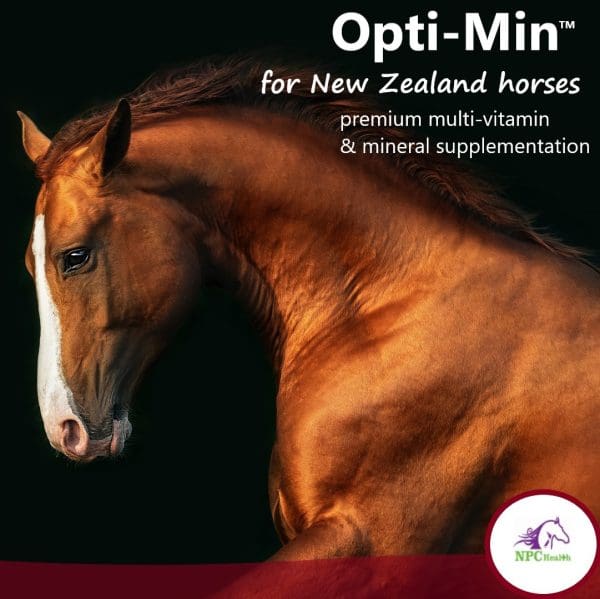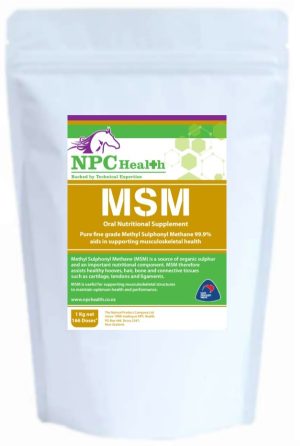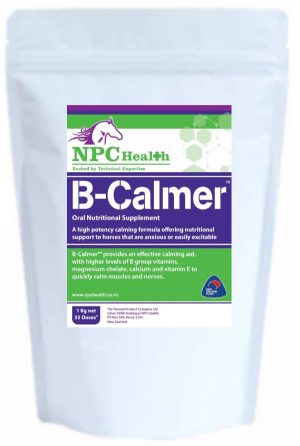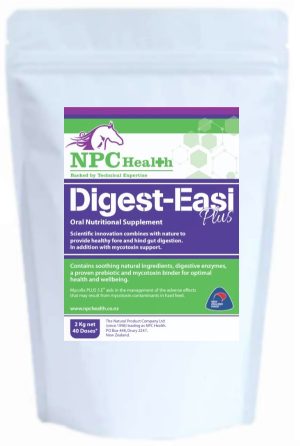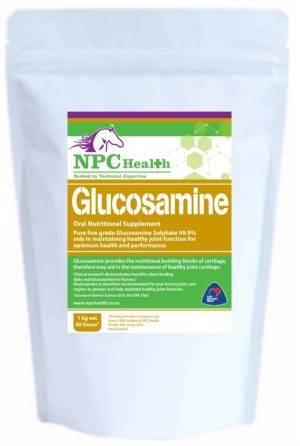Description
Full description:
A multivitamin and mineral supplement offering a full range of vitamins, minerals, amino acids, salt and the addition of a proven prebiotic yeast "saccharomyces cerevisiae".
We especially make for New Zealand conditions as our pasture is generally deficient or not well balanced in certain minerals. In New Zealand, some minerals are found in excess such as iron and manganese whilst others are in shortfall such as iodine, sodium, copper, zinc and selenium. Vitamin shortfalls of A and E can also occur where fresh green forage is restricted.
The diet of most New Zealand horses consists of pasture (of varying quality) with some hard feed rations or hay. However, some horses may require dietary restrictions with less grass and more hay, or even a hay only diet for those that struggle with obesity or laminitis. These feed restrictions mean your horse will be lower or deficient in some vitamins and minerals. If the overall diet is not corrected and balanced accordingly, poor quality hooves, coats, lower immunity and performance often manifests.
A good diet should cover sufficient fats and oils, quality protein, fibre and carbohydrates (for harder working horses) as well as vitamins and minerals. To help balance the diet Opti-min is recommended to make up nutritional shortfalls for optimal nutrition.
What about selenium?
Contains a safe level of highly absorbable organic selenium. It is far easier to top up a shortfall of selenium, than start off too high and end up with a toxicity. Selenium has a cumulative (add on) effect, so all selenium in the diet should be evaluated before adding more. Opti-min works safely in with feeds with a targeted lower level of organic selenium.
We recommend that a veterinarian blood test your horse before adding other supplements with higher selenium levels. Toxic levels are difficult to bring back down. This can take many months and is damaging (and toxic) to your horse's health. If your veterinarian recommends more, then your vet can suggest a weekly (or monthly) amount of liquid for use in conjunction to ensure your level is safe and appropriate for your horse. For this reason, we purposely formulate with a lower, safer level of selenium.
Why are vitamins added in my vitamin and mineral supplement?
Vitamins support good health for performance horses as well as those under stress, illness or feed restrictions.
B group vitamins are made in the hind gut. However, this is largely dependent on how well the horse digests, the level of stress and work requirements asked of the horse.
Horses in full work or under stress therefore have higher needs for B group vitamins.
Vitamin C is made in the liver, however, horses with higher stress, in full or demanding work, older, or unwell have greater needs for this.
B group vitamins and vitamin C are water soluble nutrients that assist with dietary shortfall, however if the body does not require can easily be excreted.
Vitamin A is found in forages but due to poor stability, unless the forage is fed fresh the amount quickly depletes (by around 5% per month). The level per dose in Opti-min is carefully calculated at the optimal level for good health and is set lower to take into account the likelihood of fresh forage consumed by the horse.
Vitamin E is also available in fresh, green forages and feed stuffs such as pasture, chaffs or ensiled feeds (horse feed in plastic wrap). However, this level is also dependent on access to fresh forages and also the quantity of forage fed.
The purpose of adding vitamins to your horse's food is to make up nutritional shortfall, never to take place of the diet itself. Higher performing horses, old, ill or horses with stress or restricted diets and those with less available natural green forage such as grass have a dietary requirement for added vitamins.
What else is in Opti-min?
Quality protein that has a good amino acid profile (covering the limiting essential acids) is also crucial to the horse's diet. We therefore include amino acids lysine, methionine and threonine. These are known as essential amino acids where their role is to ensure quality coat, hooves, immune function, growth and development and must be consumed in the diet. These are deemed essential as the body cannot make these amino acids.
We also add salt as sodium is typically low in New Zealand pastures. Our supplement in addition, contains higher levels of copper and zinc and contains no added manganese or iron (these are considered sufficient already in feedstuffs and deficiency is rare). Copper and Zinc are raised due to the competition of nutrients and where higher iron naturally present in the pasture generally lessens uptake of these, so we add slightly more, this is done in a balanced ratio. Manganese is also not added as New Zealand pastures are not deficient in this mineral. Please note this refers to Manganese and not Magnesium.
Our highly palatable equine supplement is designed to improve the health of your horse and can be used for all horses!
What is the recommended dose of Opti-min?
30-60 grams -suits most horses including performance, leisure horse riding such as horse treks and general riding, breeding mares, spelling, stallions and youngstock where some hard feed (premixed feeds) may be used but below recommended levels. 30 grams - suitable when a good level of hard feed ration is also being used (but below recommended levels).
Up to 80 grams - for horses receiving restricted grass intakes, mainly hay diets, with possibly no hard feed (or premixed commercial feed) or very little hard feed ration.
What are the signs my horse may need a vitamin and mineral supplement?
Dietary imbalances may show as:
- Anaemia
- Regular skin infections or cellulitis
- Thrush in hooves
- Low immunity
- Poor quality hoof, cracks, thin soles, poor hoof wall integrity
- Faded and dull coat
- Ill thrift (just not thriving), poor performance, sore muscles, weakness and lack lustre disposition.
Some helpful dietary tips are:
1. Feed quality protein with a good amino acid profile (such as some Lucerne) whilst ensuring all other food requirements meet condition, health and performance of your horse. Don't be afraid to change feeds with changing seasons. But do so slowly.
2. Always ensure your horse has a good level of quality hay available daily or other source of high fibre as gut microbes need fibre. The hind gut is highly specialised with an absolute need for daily fibre.
3. Ensure the hay always smells good and is not dusty. For good doers this can always be soaked if need be prior to eating (to lower sugar content).
4. Keep in mind short grass or grass that is green and growing is not providing your horse with much fibre. Grass only turns to fibre when it is longer (and generally the highest) when it forms a seed head (at the end of its life cycle).
5. Ensure hoof quality is not reduced by laminitis (check for bounding digital pulse) and look for the early signs of this disease which is becoming all too common. Also ensure good farrier care and regular hoof trimming.
6. Ensure worming and teeth are up to date. This is vital to obtain a true evaluation of your horse's health.
7. Keep in mind horses under stress, illness, grazing restrictions, low feed rations, young and growing to old all have a higher need for vitamins, minerals, good quality protein and fibre.
Supplementation will therefore assist with stronger, harder hooves, efficient digestion and gut health to healthy skin and coat, with more robust immune function and is recommended in combination with good diet.


